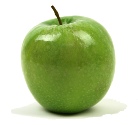



Helping you make healthy choices for you and your family

Sugar -
Interestingly, complete removal of sugar has seen some stunning recoveries from cancer, diabetes and heart disease.
Over the past 300 years we have been brainwashed with sayings like "sugar and spice and all things nice", "sweetheart", and sugar plum", making us believe that sugar is a good thing. This belief has made the sugar industry wealthy beyond most people's imaginations and it has become a very powerful industry, too.
But, according to the World Health Organisation (WHO), it is not necessary for us to have even an "ounze" of sugar in our diet. In 2003, the WHO announced that our diets should not contain more than 10 per cent of sugar. This caused an outrage amongst the sugar manufacturers, and they stated that the scientists at WHO were irresponsible and had unreliable data. They claimed that their scientists had shown that it was safe to have 25 per cent sugar in our diet. Whose studies would you rather believe?
There are a number of "sugars" available in food. The main ones are:
Glucose - occurs naturally in fruits and vegetables. Our body converts certain foods into glucose as it is the form which our life systems require for energy
Dextrose - known as "corn sugar" and is manufactured from starches
Fructose – a natural sugar found in fruits
Lactose - a natural sugar in milk
Maltose – a natural sugar in malt
Sucrose - refined sugar manufactured from sugar-cane and beet
You may also see other sugars listed on food labels such as: invert sugar, glucose syrup, maple syrup, brown sugar, raw cane sugar, honey, molasses, black treacle, golden syrup, concentrated fruit juice sweetener, levulose, or sorbitol. If these sugars are listed in the top two to three ingredients, they are likely to make up a large part of the product eg. a can of fizzy drink may contain seven to eight teaspoons of sugar, a glass of fruit squash - 2 teaspoons, and a sugar-coated breakfast cereal - almost 5 teaspoons of sugar. People are consuming as much as 24 teaspoons of sugar daily, much of which is hidden in processed food.
The most refined of the sugars is sucrose, the "white stuff". The manufacturing process removes salts, fibre, protein, vitamins and minerals making sucrose nutrient-free and therefore difficult for the body to process. This results in toxic by-products which interfere with cell respiration, starving them of oxygen and causing free radical damage to our cells - a bit like a rusting process in the body leading to degenerative disease and premature ageing.
All refined sugars act like parasites because their lack of nutrients leach valuable minerals from the body, eg. it can cause a deficiency in copper which reduces the elasticity of blood vessels resulting in aneurysms and stroke. Also, sugar puts the body into an acidic state, so to compensate, calcium is taken from the bones resulting in osteoporosis (see list of diseases).
In contrast, a natural sugar like fructose, which is found in fruit, has the necessary vitamins and minerals present, essential for the complete processing of the sugar to occur.
Why is sugar so widely used by the food industry?
The addition of sugar makes processed food more tasty or palatable. It is also used as a preservative, gelling agent, bulking agent, and fermenting agent. In one go, sugar offers tastiness, shelf-life and texture at very little cost and its addictive nature means we are guaranteed to want more. Manufacturers particularly target high sugar foods to children and the majority of the advertisements on television (up to 80%) for these foods are shown during children's viewing times. There have been moves around the world to ban such advertisements to help address the increasing problem of childhood obesity and diabetes. The more sugar in a child's diet, the less inclined they are to eat vitamin and mineral rich foods such as fruits and vegetables. Unless serious action is taken, today's parents will outlive their children.
If you have realised that you are addicted to sugar and you want to avoid contracting any of the diseases or conditions listed earlier, then there are ways to curb your craving and dependency on sugar.
1) Keep a sugar diary
To understand how much you are overloading on sugar, writing down everything you eat or drink for a week should convince you. In the second week, start eliminating sugary foods, or at least cut down on them. Statistics show that sugar makes up about 25 per cent of an adult's calorie intake. For teenagers the figure is closer to 50 per cent.
2) Banish all sugar and sweets from the house
Feeding a sugar craving is a lot harder when temptation is out of reach. It's the same for nicotine or heroin addicts. If you are a member of a family, this may be quite a difficult task as children and teenagers may object strongly to this "deprivation". However, you need to stand firm for the sake of everyone's health and explain to them why you are doing this.
3) Take time out to nibble
A quick dose of refined sugar causes blood sugar levels to rise rapidly. The body releases insulin to reduce the blood sugar, which soon results in hunger for another sugar attack. Instead of snacking on sweetened foods, try nuts, seeds, raw vegetables, fruits and cheese. If you nibble on these every two to three hours, you will find you crave less and you'll eat less at regular meals. This should help to prevent the highs and lows in your blood sugar levels that may lead to Type 2 Diabetes.
4) Increase your intake of whole foods
Whole grains and vegetables are packed with nutrition but these foods are usually low on a sugar addict's list. Overloading on sweet foods can lead to a vitamin and mineral deficiency. Try substituting with unprocessed whole foods such as vegetables, fruits, nuts and seeds.
5) Beat binges with exercise
If the blood sugar is high, exercise will help to bring it down and if it is low, then exercise will bring it up. So if you feel a sugar urge coming, go for a brisk walk or jog, do a few "jumping jacks", or some "push-ups". You should also incorporate exercise into your every day routine as this will benefit your whole body and help you to control glucose more efficiently.
6) Get a daily dose of B vitamins
B vitamins can help to sour a sweet tooth and can help to keep blood-sugar working at an optimal level. Foods containing the B vitamins are whole grains, fresh vegetables, and wheatgerm. It would also be wise to supplement with a multivitamin and mineral tonic as sugar addicts are usually deficient in many vitamins and minerals.
7) Increase your intake of chromium, manganese and zinc
Like the B vitamins these three trace minerals are important in keeping the blood sugar stable. Chromium is found in broccoli, nuts, oysters, mushrooms, and whole grains and helps by making insulin more efficient. Zinc can be found in oysters, fish, legumes and whole grains. Manganese is found in pineapple, nuts, beans, whole wheat and spinach. They both help to stabilise blood sugar. Zinc can also enhance the sense of taste and has been shown to control a sweet tooth. These trace elements are also available in Maximol Solutions.
8) Avoid red meat
Some people have found that eating red meat increases their desire for something sweet at the end of a meal. By eating fish or poultry, they have found that they are satisfied with fruit or no dessert at all. This is just an observation but it may help those who have a strong addiction to sugar.
9) Read package labels very carefully
Sugar can end up in the most unlikely items - even toothpaste. So, it is important to read all labels. You need to be aware of the different names for sugar so take a look at the list of sugars mentioned earlier. Even savoury items like soups or crisps may contain sugar, so be vigilant.
10) Avoid the vending machines
These machines seem to pop up everywhere, even in schools and colleges. If you find it hard to pass a machine without buying a fizzy drink or sweet snack, make sure you have healthy alternatives with you.
11) Make fruit your natural sweet
Over the past 300 years we have been brainwashed with sayings like "sugar and spice and all things nice", "sweetheart", and sugar plum", making us believe that sugar is a good thing. This belief has made the sugar industry wealthy beyond most people's imaginations and it has become a very powerful industry, too.
But, according to the World Health Organisation (WHO), it is not necessary for us to have even an "ounze" of sugar in our diet. In 2003, the WHO announced that our diets should not contain more than 10 per cent of sugar. This caused an outrage amongst the sugar manufacturers, and they stated that the scientists at WHO were irresponsible and had unreliable data. They claimed that their scientists had shown that it was safe to have 25 per cent sugar in our diet. Whose studies would you rather believe?
There are a number of "sugars" available in food. The main ones are:
Glucose -
Lactose -
Sucrose -
You may also see other sugars listed on food labels such as: invert sugar, glucose syrup, maple syrup, brown sugar, raw cane sugar, honey, molasses, black treacle, golden syrup, concentrated fruit juice sweetener, levulose, or sorbitol. If these sugars are listed in the top two to three ingredients, they are likely to make up a large part of the product eg. a can of fizzy drink may contain seven to eight teaspoons of sugar, a glass of fruit squash -
The most refined of the sugars is sucrose, the "white stuff". The manufacturing process removes salts, fibre, protein, vitamins and minerals making sucrose nutrient-
All refined sugars act like parasites because their lack of nutrients leach valuable minerals from the body, eg. it can cause a deficiency in copper which reduces the elasticity of blood vessels resulting in aneurysms and stroke. Also, sugar puts the body into an acidic state, so to compensate, calcium is taken from the bones resulting in osteoporosis (see list of diseases).
In contrast, a natural sugar like fructose, which is found in fruit, has the necessary vitamins and minerals present, essential for the complete processing of the sugar to occur.
Why is sugar so widely used by the food industry?
The addition of sugar makes processed food more tasty or palatable. It is also used as a preservative, gelling agent, bulking agent, and fermenting agent. In one go, sugar offers tastiness, shelf-
If you have realised that you are addicted to sugar and you want to avoid contracting any of the diseases or conditions listed earlier, then there are ways to curb your craving and dependency on sugar.
To understand how much you are overloading on sugar, writing down everything you eat or drink for a week should convince you. In the second week, start eliminating sugary foods, or at least cut down on them. Statistics show that sugar makes up about 25 per cent of an adult's calorie intake. For teenagers the figure is closer to 50 per cent.
2) Banish all sugar and sweets from the house
Feeding a sugar craving is a lot harder when temptation is out of reach. It's the same for nicotine or heroin addicts. If you are a member of a family, this may be quite a difficult task as children and teenagers may object strongly to this "deprivation". However, you need to stand firm for the sake of everyone's health and explain to them why you are doing this.
3) Take time out to nibble
A quick dose of refined sugar causes blood sugar levels to rise rapidly. The body releases insulin to reduce the blood sugar, which soon results in hunger for another sugar attack. Instead of snacking on sweetened foods, try nuts, seeds, raw vegetables, fruits and cheese. If you nibble on these every two to three hours, you will find you crave less and you'll eat less at regular meals. This should help to prevent the highs and lows in your blood sugar levels that may lead to Type 2 Diabetes.
4) Increase your intake of whole foods
Whole grains and vegetables are packed with nutrition but these foods are usually low on a sugar addict's list. Overloading on sweet foods can lead to a vitamin and mineral deficiency. Try substituting with unprocessed whole foods such as vegetables, fruits, nuts and seeds.
5) Beat binges with exercise
If the blood sugar is high, exercise will help to bring it down and if it is low, then exercise will bring it up. So if you feel a sugar urge coming, go for a brisk walk or jog, do a few "jumping jacks", or some "push-
6) Get a daily dose of B vitamins
B vitamins can help to sour a sweet tooth and can help to keep blood-
Like the B vitamins these three trace minerals are important in keeping the blood sugar stable. Chromium is found in broccoli, nuts, oysters, mushrooms, and whole grains and helps by making insulin more efficient. Zinc can be found in oysters, fish, legumes and whole grains. Manganese is found in pineapple, nuts, beans, whole wheat and spinach. They both help to stabilise blood sugar. Zinc can also enhance the sense of taste and has been shown to control a sweet tooth. These trace elements are also available in Maximol Solutions.
8) Avoid red meat
Some people have found that eating red meat increases their desire for something sweet at the end of a meal. By eating fish or poultry, they have found that they are satisfied with fruit or no dessert at all. This is just an observation but it may help those who have a strong addiction to sugar.
9) Read package labels very carefully
Sugar can end up in the most unlikely items -
These machines seem to pop up everywhere, even in schools and colleges. If you find it hard to pass a machine without buying a fizzy drink or sweet snack, make sure you have healthy alternatives with you.
11) Make fruit your natural sweet
Keep an assortment of fruit in the home or with you when you are out, to eat when you have a sugar attack. Fruit is high in vitamins and helps you to feel full and satisfied much longer. It also helps to quench your thirst so should help to deter you from reaching for a fizzy drink.
Like most addictions, the first step is accepting you're addicted before you can deal with it. Sugar is as addictive as heroin but no matter how impossible it may seem to avoid it totally, it can be done. Take another look at the list of diseases and conditions which are attributed to high sugar intake. If you want to avoid any of them, then there is only one option.
Like most addictions, the first step is accepting you're addicted before you can deal with it. Sugar is as addictive as heroin but no matter how impossible it may seem to avoid it totally, it can be done. Take another look at the list of diseases and conditions which are attributed to high sugar intake. If you want to avoid any of them, then there is only one option.
Disclaimer: The information in this article should not be regarded as medical advice. If you are receiving medical treatment or taking prescribed medication, you are advised to consult your GP or health practitioner before making any changes to your diet or lifestyle.

Are you a sugar addict? If you have to add sugar to your food or beverages, then you are addicted to this white, crystalline substance. Refined sugar, in its many forms, is considered to be one of the most poisonous, yet most widely available nutrient-free foods known to man. Refined sugar is responsible for causing or exacerbating dozens of the degenerative diseases or conditions afflicting mankind today.
Below is a list of some of those diseases or conditions:
|
|
Cardiovascular disease: -
|
|
|
Gastro-
|
|
|
Cancer: -
|
|
|
Obesity: -
|
|
|
Dental disease: -
|
|
|
Endocrine Disorders: -
|
|
|
Behaviour disorders: -
|
|
|
General disorders: -
|
| Your Health Your Future |
| Controversial Ingredients |
| Nutritional State |
| Parent and Child |
| Microwave Ovens |
| Recommended Books |
| Skin Absorption |
| Sodium Lauryl Sulphate |
| Propylene Glycol |
| DEA, MEA, TEA |
| Chemical Calculator |
| Fluoride |
| Aspartame |
| Fluoridation |
| Water Filtration |
| Planning a Pregnancy |
| Pregnancy Care |
| Post Pregnancy Care |
| Amazon Books |
| EBooks |
| About Us |
| Health Services |
